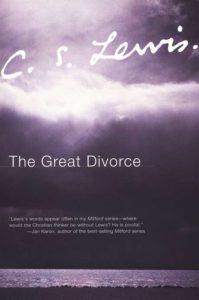The Truth And Story
 I’m a big believer in the Bible and in the idea that Christian storytellers have a huge opportunity to speak truth into the lives of people in such a way that they are more inclined to listen. I am coming to understand, however, that what I see as truth, others interpret as fairy tales.
I’m a big believer in the Bible and in the idea that Christian storytellers have a huge opportunity to speak truth into the lives of people in such a way that they are more inclined to listen. I am coming to understand, however, that what I see as truth, others interpret as fairy tales.
From Jill Carattini of the Ravi Zacharias International Ministries in an article entitled “To Hear the Horns of Elfland”:
Of the many objections to Christianity, it is this one that stands out in my mind as troubling: that to be Christian is to withdraw from the world of reality, to follow fairy tales with wishful hearts and myths that insist we stop thinking and believe all will be right in the end because God says so.
The thing is, all will be right in the end, because God says so. So I agree with Ms. Carattini: the objection is troublesome because it points a finger at Christianity and says “reality” doesn’t verify belief in the “fairy tale” ending.
In some small part, I think Christian writers have the responsibility to dispel this objection, to demonstrate the way the world really works.
C. S. Lewis did that for me.
When I was young, I was deathly afraid of dying. I remember driving past a burned home and thinking of people dying in the fire. I remember hearing ambulance sirens and imagining the people whose lives might be hanging in the balance.
Primarily, I didn’t want to die, and told my mother so when I was about five. All during childhood I had false ideas about dying. For some time I thought it meant I would come to an end–simply cease to be. Then I thought it meant I would become one with a great consciousness (I don’t know where I got that notion), and finally that I would be in some sort of angelic state where I would sit around on clouds playing a harp.
As I grew older, I tried not to think about dying. Then I read Lewis’s The Great Divorce.
That book simply revolutionized my understanding. Life after life is what’s real, what’s solid, and it is the temporal life we now experience that is wispy and ephemeral. Imagine my surprise to learn that Lewis’s view was also Scriptural. (“Yet you do not know what your life will be like tomorrow. You are just a vapor that appears for a little while and then vanishes away” James 4:14).
The thing is, C. S. Lewis didn’t correct my thinking by giving me a theological treatise on the afterlife. Rather, he showed, from his imagination, the reality of life beyond this life. No, I’m not suggesting that Lewis had some vision of heaven and that he gave an account of what we can expect to which I must cling as if it is Scripture itself.
What Lewis did was alter my understanding by giving his own imaginative version that contradicted everything I’d thought before. He showed eternal life to be the true reality, not the vaporous wisp I’d imagined it to be. He showed heavenly riches to be far surpassing anything of earthly substance. He portrayed heaven to be rich with certainty and joy, and hell to be isolating and filled with selfishness.
A fairy tale? Indeed. Lewis made up his Gray Town and his Ghosts and Solid People, but in so doing, he showed me, at least, that life after life is what matters most, that this prologue we’re in is critical but not complete in and of itself, that its meaning is in relation to the whole story.
In the same way, I think Christian speculative writers can counter the objections Ms. Carattini finds troubling. We can show that Christianity is not withdrawal, that having God’s word to verify a thing is the best evidence of all, and that fairy tale endings aren’t happily ever after for people like the wicked witch or the Big Bad Wolf.
As she noted in her article
Christianity is . . . far from an invitation to live blind and unconcerned with the world of suffering around us, intent to tell feel-good stories or to withdraw from the harder scenes of life with fearful wishes.
In the same way that George MacDonald opened C. S. Lewis’s understanding of spiritual things, and Lewis opened mine and a host of other writers’, I think it’s natural that we pay forward what we received. We have the opportunity to do what he did in our stories. As biographer Alan Jacobs put it, “[Lewis’s] real power was not proof; it was depiction” (The Narnian: The Life and Imagination of C.S. Lewis p. 312).
By emulating Lewis’s purpose to show truth in concrete terms, we can dispense with the notion that what God says is merely a fairy tale. In other words, we can use “fairy tales” to kill the notion that God’s work and word is a fairy tale. Ironic, isn’t it!
This article first appeared here under the title “Because God Says So” in September 2013.










































Ah, The Great Divorce. One of my favourites. And it encapsulates so much of what we have been discussing here in the series of “Should Christian stories evangelize?” There is no strictly defined “evangelism” in that book, but in a sense that whole story is evangelistic as it presents spiritual reality and invites a choice in the minds of the reader. And it very much leaves the choice open, just like all the dead in the story had a choice, too. I love that Jacobs quote, it sums it all up very nicely!
Excellent points, Lisa. You’ve nailed it. Lewis is a master at not evangelizing but in creating a thought-provoking environment through story that invites readers to consider spiritual themes. Not every reader will, but even in an evangelistic crusade, not every person who is lost will respond favorably to the call of the Holy Spirit. And I agree that Mr. Jacobs nailed precisely what Lewis did: he depicted truth instead of proving it.
Thanks for contributing to the topic, Lisa.
Becky